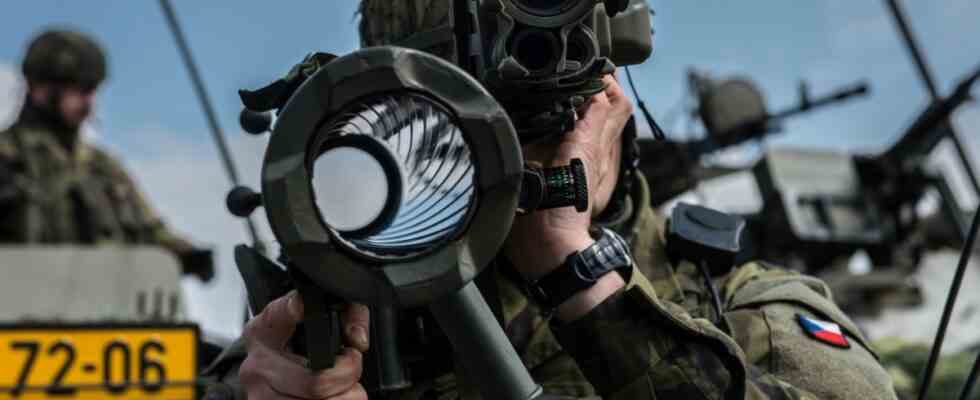Inflation is high, the country is on the brink of recession, but one sector is currently booming in the Czech Republic: the armaments industry. For example, the arms manufacturer CZ Group, which also includes Colt from the USA, recently reported a jump in profits by almost half in the first nine months, the state-owned munitions company Explosia was even able to increase its profit more than double. Also in demand are the products of the STV Group, which covers large parts of military needs from grenades to anti-tank mines and uniforms, and the Czechoslovak Group, which among other things Pandur and other armored vehicles.
But all the gunsmiths have a problem: they can hardly meet the demand for armaments that the Russian attack triggered. The Czech Republic is one of Ukraine’s most important supporters. Since the outbreak of war, the country has delivered armaments worth the equivalent of more than 1.9 billion euros – leaving a large part of its stocks to the Ukrainian army. The camps now have to be refilled, the defense budget has been increased by a quarter. In addition, up to 4,000 Ukrainian soldiers are to be trained in the Czech Republic in the new year.
The armaments companies now want to boost production and modernize the factories. Added to this is the need for research and development. The Czechoslovak Group alone needs 500 new employees, said Deputy Defense Minister Tomáš Kopečný on Czech radio. Prague is therefore now inviting skilled workers from Ukraine to work in domestic arms production. We are talking about thousands of jobs and joint production in Czech-Ukrainian joint ventures. Part of the Ukrainian production is also to be relocated to the Czech Republic. Kopečný assumes that thousands of jobs could be created – for Ukrainians, but also for Czechs. “Our country will get richer,” he said.
Prime Minister Petr Fiala, who leads a conservative-liberal coalition of five in Prague, has already approved work permits for Ukrainian skilled workers. During a visit to Kyiv at the end of October, Fiala negotiated this directly with Ukrainian President Volodymyr Zelenskiy. Around 20,000 people are currently employed in the Czech armaments industry. According to Kopečný, the state-owned Ukrainian company Ukroboronprom alone, with which the company now wants to cooperate, has more than 100,000 employees.
In addition, a “joint defense cluster” is to be formed with Ukroboronprom, according to the Czech media. “The aim is to increase the production of military material for the needs of the Ukrainian Armed Forces”, quotes the Fintag.cz platform from a response from the ministry.
Orders from the USA and the Netherlands
The Czech Republic has been attracting migrant workers from Ukraine for years. They are the largest immigrant group, around 60,000 were counted in the country with almost eleven million inhabitants before the war. With the outbreak of the war, many men returned to their homeland to report for military service – but more than 460,000 people in the Czech Republic sought protection from the Russian attack. Many of them quickly found work, for example with the car manufacturer Škoda. In the spring he found a creative solution to counteract the shortage of skilled workers and supply chain problems and to help at the same time: A supplier of cable harnesses was quickly relocated from western Ukraine to Mladá Boleslav in the Czech Republic.
It’s supposed to be something similar with military production. According to Kopečný, the armaments are ordered from Great Britain, the Netherlands, the USA and Norway as well as from Ukraine itself, both from the state and from private donors.

